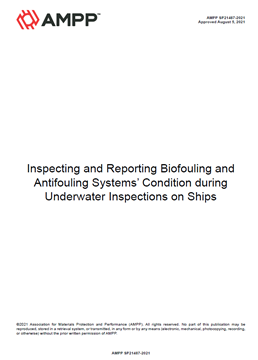Search
Products tagged with 'underwater'
View as
Sort by
Display
per page
AMPP SP21487-2021, Inspecting and Reporting Biofouling and Antifouling Systems’ Condition during Underwater Inspections on Ships
Product Number:
AMPP SP21487-2021
Publication Date:
2021
$109.00
Making an Eco-Efficient Choice for Controlling Fouling Growth in Your Vessel
Product Number:
41211-615-SG
Publication Date:
2011
$20.00
NACE Publication ID199-1999-SG, Internal Corrosion Monitoring of Subsea Production and Injection Systems
Product Number:
24202-SG
$109.00
Precision Navigation For Hull Crawling Robots - Efficient Robots For Automated Grooming
Product Number:
51322-17660-SG
Publication Date:
2022
$20.00
True Value of Quality: A Case History of a Success Story
Product Number:
41206-243-SG
Publication Date:
2006
$20.00
Underwater Ship Hull Coatings Systems in thte Post-TBT ERA
Product Number:
41212-661-SG
Publication Date:
2012
$20.00






